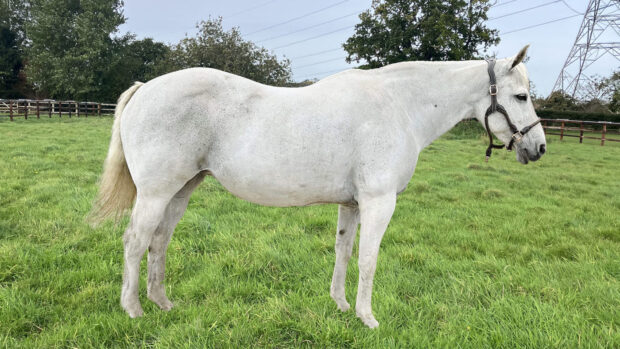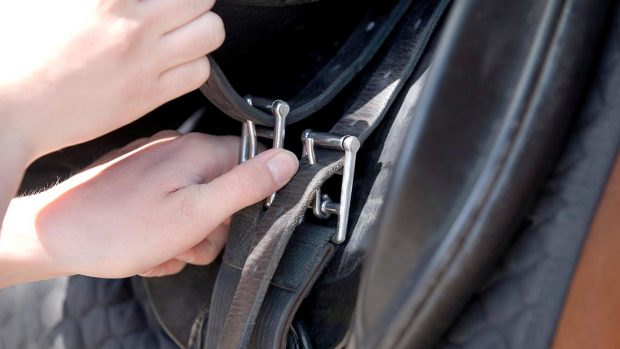Q: My cob mare has been put on a diet to ease the strain on a bad leg, but in fact she seems to be gaining weight. I walk her for 20 minutes a day and will start ridden work in two weeks. She lives out and is fed a herbal supplement and some carrots. How can I get the weight off her and keep it off?
Christine Smy replies: Native breeds and cobs are particularly susceptible to weight gain, and can remain overweight right through the winter.
This is often due to either their sluggish metabolism, lack of exercise or greediness, and is not desirable, as excess fat will affect breathing and put strain on joints and limbs.
In order to reduce your horse’s weight, you will need a combination of reduced food and increased exercise.
In your mare’s case, the latter will be taken care of once you start riding her again. Exercise is just as important as calorie restriction so, if you have only limited time, lungeing her in trot for 20 minutes once she’s fit will help.
Measuring weight
As for reducing the feed, I suggest you buy a weigh tape, either from a local feed merchant or from a feed company, and use this to determine your mare’s current weight.
Weigh her weekly at the same time and write down the weights in order to see a gradual loss. From her weight, you will be able to work out the amount of feed to provide.
Most horses will eat 2 – 2.5% of their bodyweight daily. A “dieting” horse should be fed around 1.5 per cent of their bodyweight. So, a horse weighing 500kg, should be fed 7.5kg (16.5lb) of food a day. This includes concentrates and hay.
Feed by weight not volume
You will need to weigh your hay with a spring balance to make sure you are not overfeeding andif you are feeding concentrates, weigh them, rather than guessing the volume of your scoop. If possible, mimic the horse’s natural feeding pattern by feeding little and often.
Use a well-fitting bucket muzzle during the day to restrict grass intake and stable your mare at night on shavings or paper, limiting the hay and feeding it in a small-holed haynet. Better still, use a starvation patch during the day and stable with limited hay at night.
Look for clean, late-cut,preferably timothy grass-based hay, as this will have a lower calorie level than an early-cut rye grass. The herbal supplement you’re feeding may not be providing adequate minerals and vitamins, so why not talk to a nutritionist about its feed value?
For variation, feed a complete chaff as a partial hay replacer. Look for those made with dried grass or alfalfa and containing a low level of sugar molasses. Carrots provide an ideal snack as they are 80% water.
Read more expert feeding advice:




